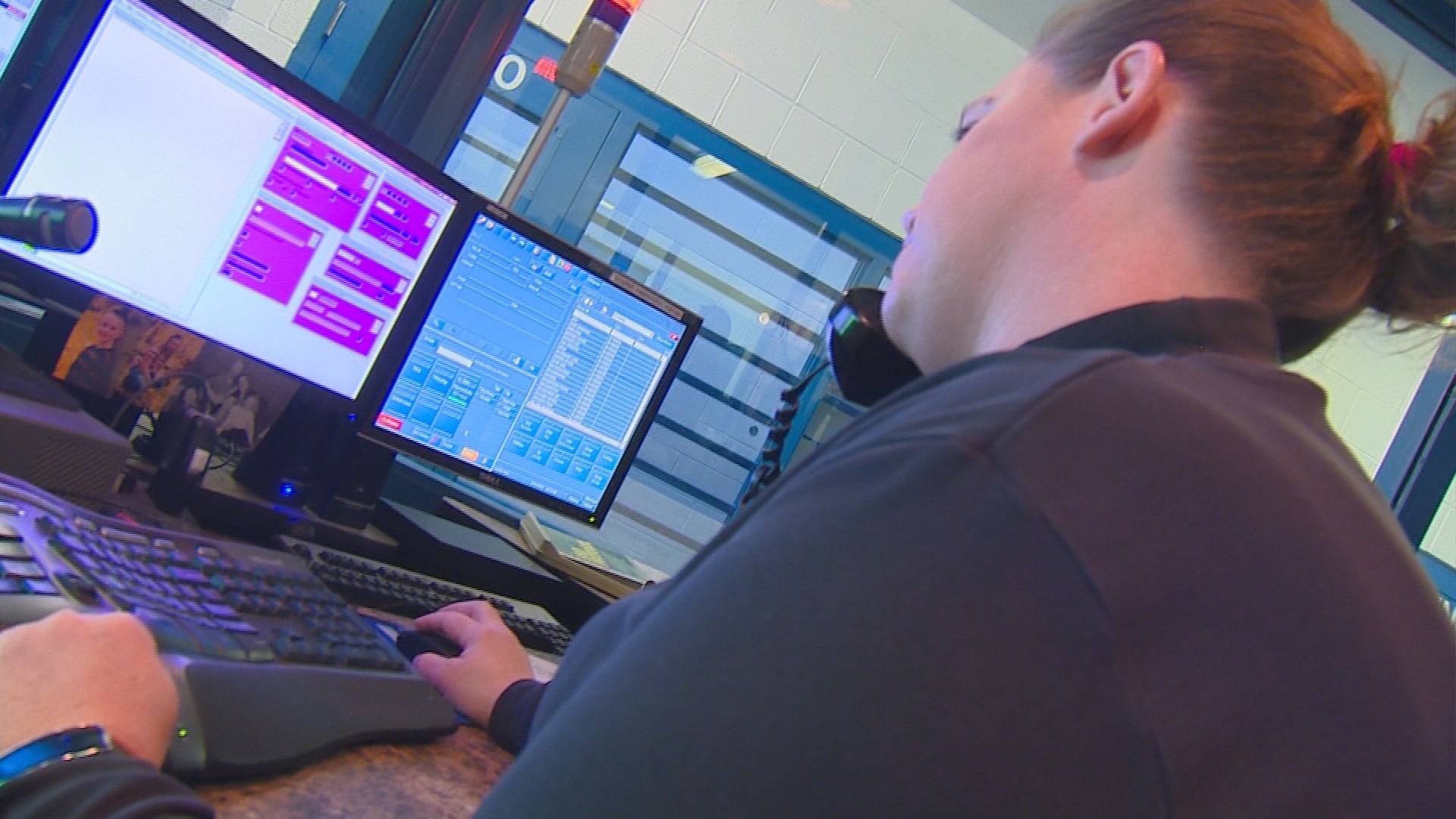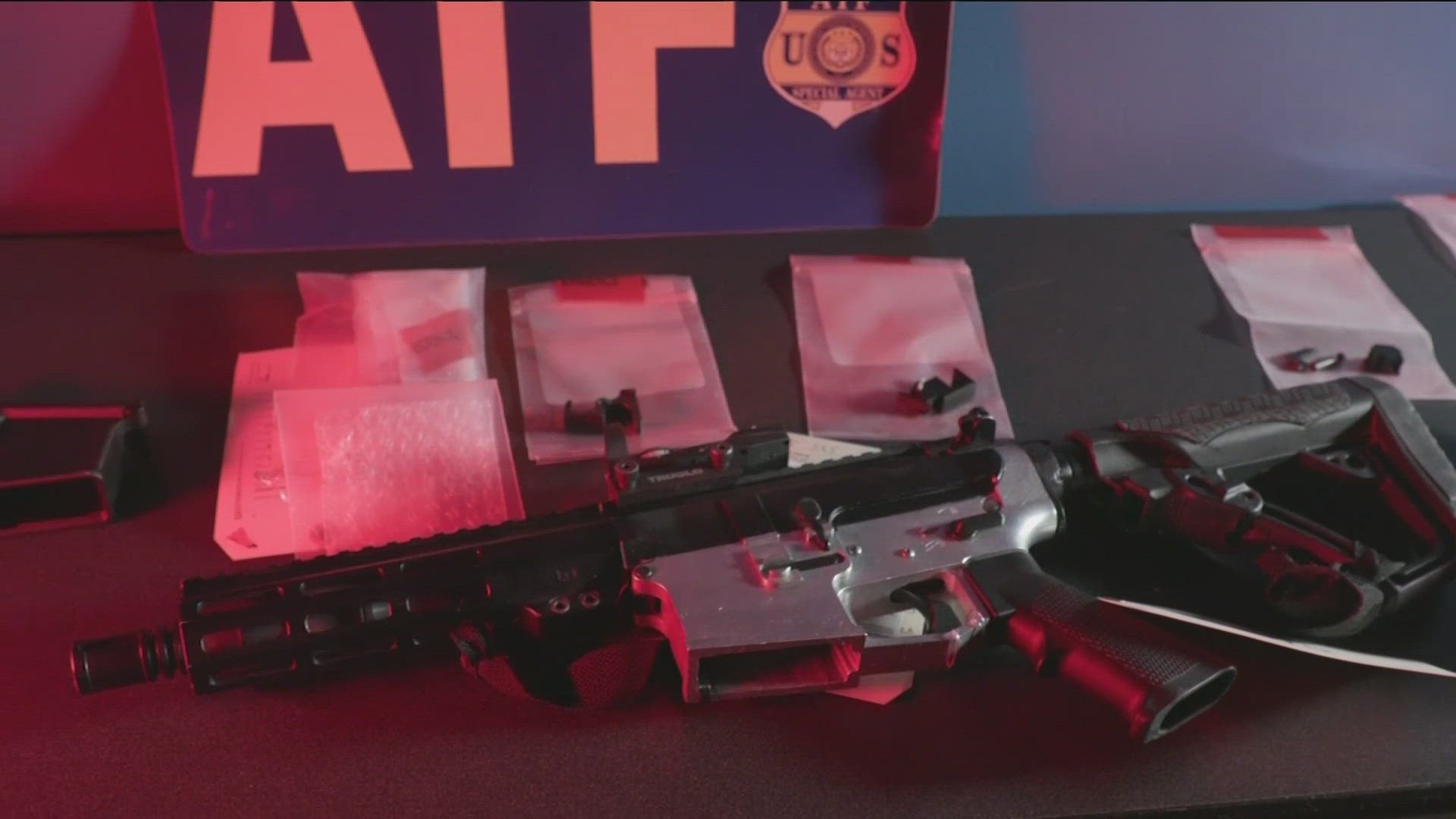BOISE -- Some emergency calls to 911 from cell phones are coming in without GPS locations, and dispatchers simply cannot find the person in need of help.
It's an issue that's happening all across the country, and cost a young woman in Georgia her life.
LOST ON THE LINE
Shanelle Anderson drove off the road and into a lake, and called 911 to tell them she needed help.
But, her phone didn't relay her location. Even though she told dispatchers where she was, her call went to a tower outside their jurisdiction, and they had no way to find her.
After 29 minutes, authorities pulled her SUV from water, too late to save Anderson's life.
Anderson's mother Jacquene Curlee says that's simply unacceptable.
"She told 911 where she was exactly and for them still not to be able to locate her is insane. Trying to find where she was, no instructions were given on how to save your life because they were so focused on where is she," said Curlee.
It's such a widespread problem, that the FCC has created new guidelines, with the goal of locating 40 percent of cell phone callers in two years, and 80 percent in six years.
SIMILAR PROBLEMS IN PARTS OF IDAHO
KTVB reached out to several counties to see if they are seeing cell calls coming in without GPS location information.
The dispatchers in Owyhee County say it happens every single day.
Dispatch supervisor Christine Ballard says they don't know where about twenty percent of the emergency calls are coming from.
"We call those back, there's really nothing we can do on those, hope for the best," said Ballard.
Sometimes, no location is included on their screen, and other times all dispatchers see is the cell tower address receiving the call.
Ballard says it's because older phones, like flip phones and some early smart phones, don't always provide your GPS location. She says on some models, it's a setting you can manually turn off.
"Generally the biggest delay is people don't know where they are and people have this concept that when you call 911 we have some super computer that's going to automatically tell us exactly where they're at, even though that may not be the case," said Ballard.
When dispatchers don't get a location, Ballard says they rely on the caller to tell them where they are. In rural Owyhee County, often times it's information the caller doesn't know.
"We do have those all the time because people get lost and what you do is base it off the cell phone tower that their phone call is hitting, so you can triangulate is it basically what you do," said Ballard
Ballard says they can contact the cell phone provider to get better idea of the location, but it's a process that takes about five minutes.
When seconds count, Ballard says the best tool is the dispatchers' training and knowledge.
"The responsibility falls upon each county and each police department that has their dispatcher to know the area where they work, know the streets and roads and different landmarks with your county," said Ballard.
Often, that knowledge must stretch beyond county borders as well, since calls go to the closest tower of your carrier, which could be in another county.
In fact, if you step right outside the Owyhee County dispatch center and call 911, the call will actually go to a cell tower in Canyon County.
Ballard says it happens all the time, so often that they have transfer buttons to connect the call to the correct dispatch center, with up to a 3 to 5 second delay.
They also have an advanced mapping system that reaches outside their jurisdiction.
"Not only does it include every location in our county it includes surrounding counties and states," said Ballard.
Ballard says they can easily look up an address outside Owyhee County and still find you.
WHO IS HELD ACCOUNTABLE?
Each of Idaho's 46 dispatch centers have their own systems, and some may not be as sophisticated.
"Not everybody's mapping is as good as the next county's, it's all a matter of what you can afford," said Ballard.
So who is held accountable for gaps in the system?
Back in 2004, the state created an Emergency Communications Commission.
The role of the 13 appointed members is to help the individual districts manage and operate their emergency centers.
Craig Logan has been the program manager for about a year.
"The way the state of Idaho works is each individual county runs their own show and the political environment in Idaho is such that state involvement is held at a minimum," said Logan.
Logan says they don't track any data when it comes to which calls don't have GPS information, making it impossible to determine how widespread the problem is.
Logan says each county is responsible for its own operation.
But, Ballard believes solutions lie outside Idaho's 911 centers, with cell phone companies.
"I know that the technology is out there to provide 911 centers with the proper location however the cell phone companies get no profit out of that so there really is no incentive to provide that information," said Ballard.
THE FUNDING BEHIND THE SYSTEM
You may not have noticed, but on your monthly phone bill, there is a dollar fee per line.
About 98 cents of that goes directly back to the county where you live, to pay for 911 operations.
We asked the commission's program manager about where that money goes and whether there is any oversight.
He said there is no agency tracking those funds, it's up to county to monitor the funds and how they are spent.
The ECC collects one cent of each dollar and in 2014, that totaled $189,500.06.
You also pay an additional .25 cent fee in 39 counties. Ada, Idaho, Blaine, Bannock, and Bonneville have all chosen to opt out of that program.
Ada County Sheriff Gary Raney provided a statement to KTVB about why they chose not to collect the additional fee:
"We have a responsibility to Ada County residents to be fiscally responsible. I can't support charging them $.25 extra every month when it is not clear that the money would be used to improve services to people living in our community. If, in the future, there is sound evidence to support the need for additional funding going to the state emergency communication fund, I will reconsider my position on collecting a higher fee from Ada County cell phone users. But until that time, I don't believe we can justify asking for the higher fee to be collected."
The money from the additional fee goes into a grant fund that the commission uses to help those counties with their upgrades and expenses. In 2014, that totaled $2,028,583.50.
The ECC then goes through a list of project requests from the counties participating and decides where the money should be spent.
Logan tells KTVB over the past four years, more than $10 million dollars collected by the additional .25 cent fee has gone toward massive upgrades across the state. He says now essentially every county is up to Phase 2 standards.
To learn more about the ECC, the funding behind Idaho's 911 centers, and plans for the future, click HERE.


